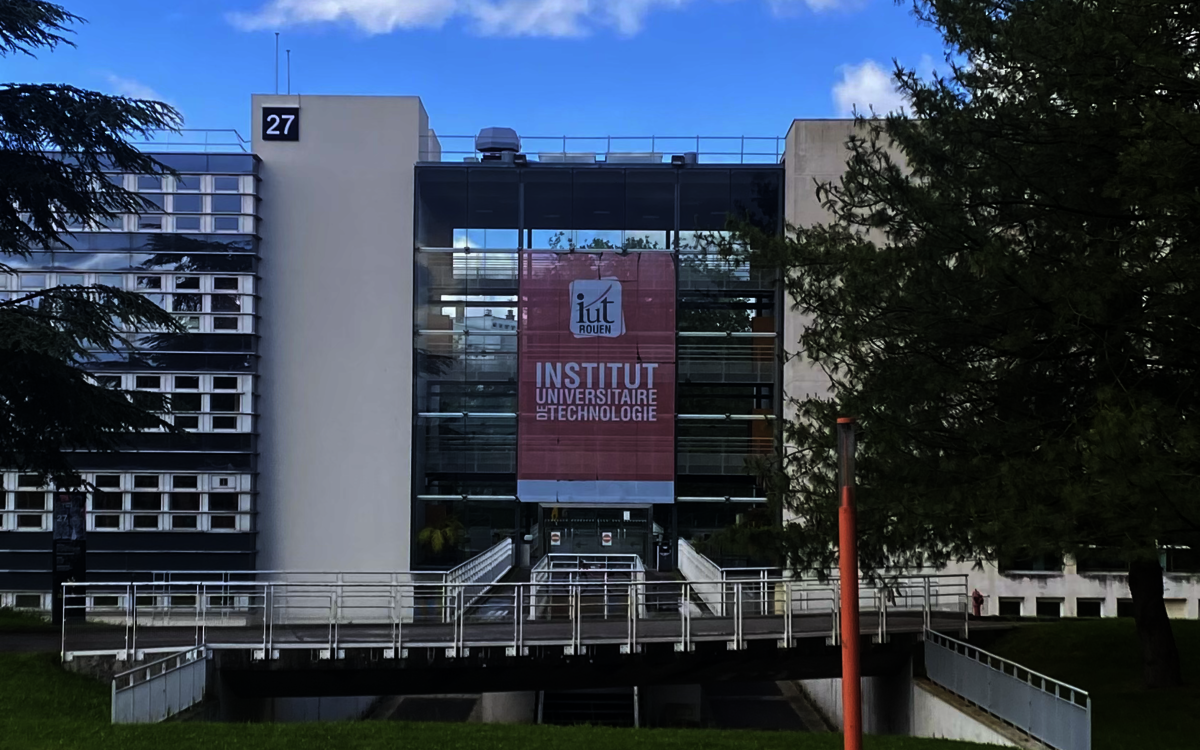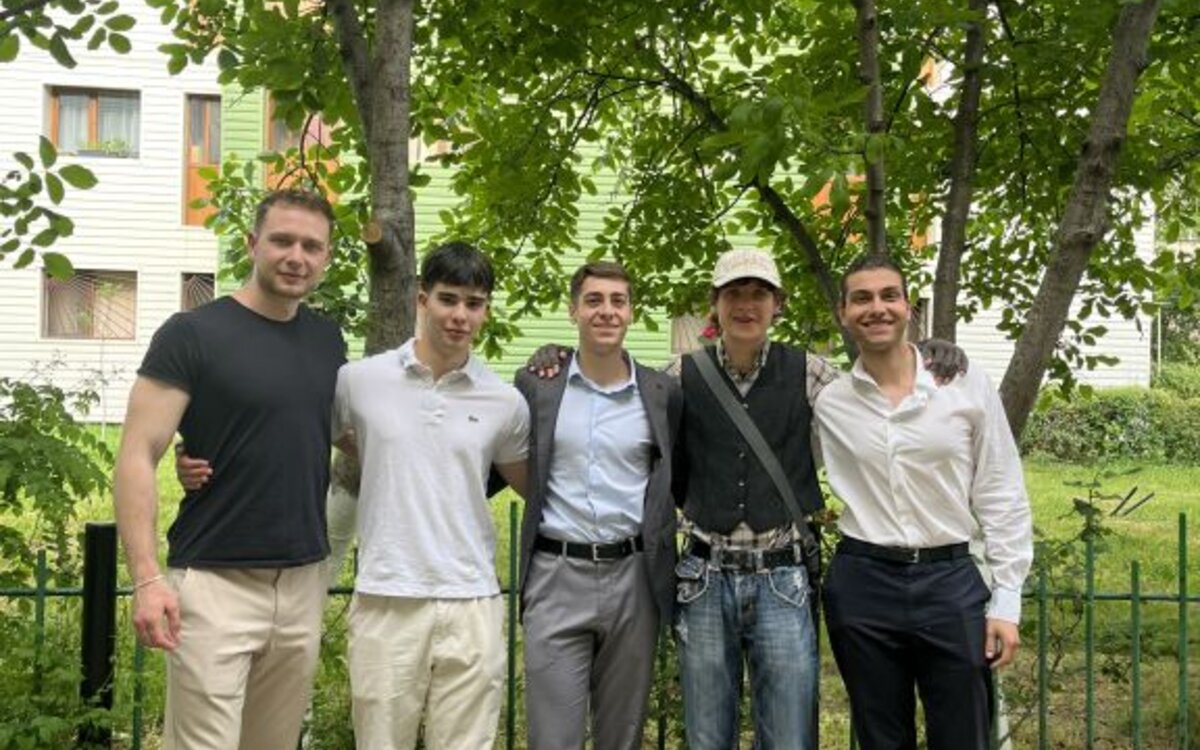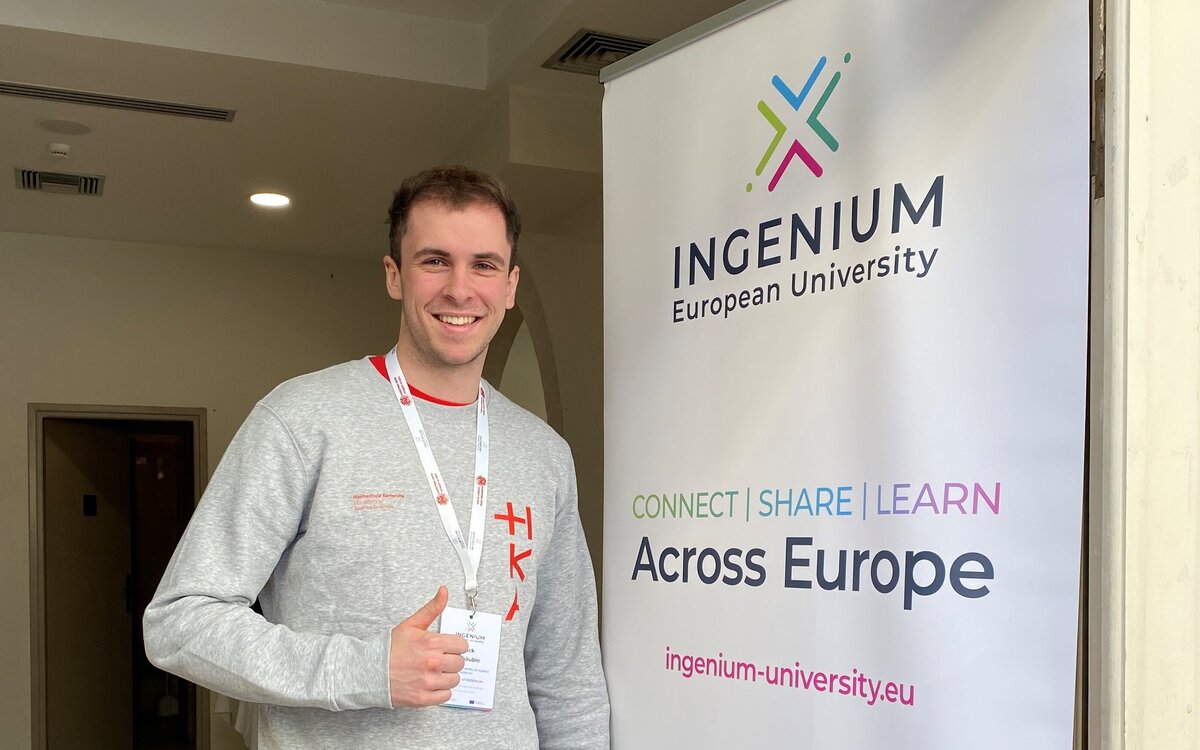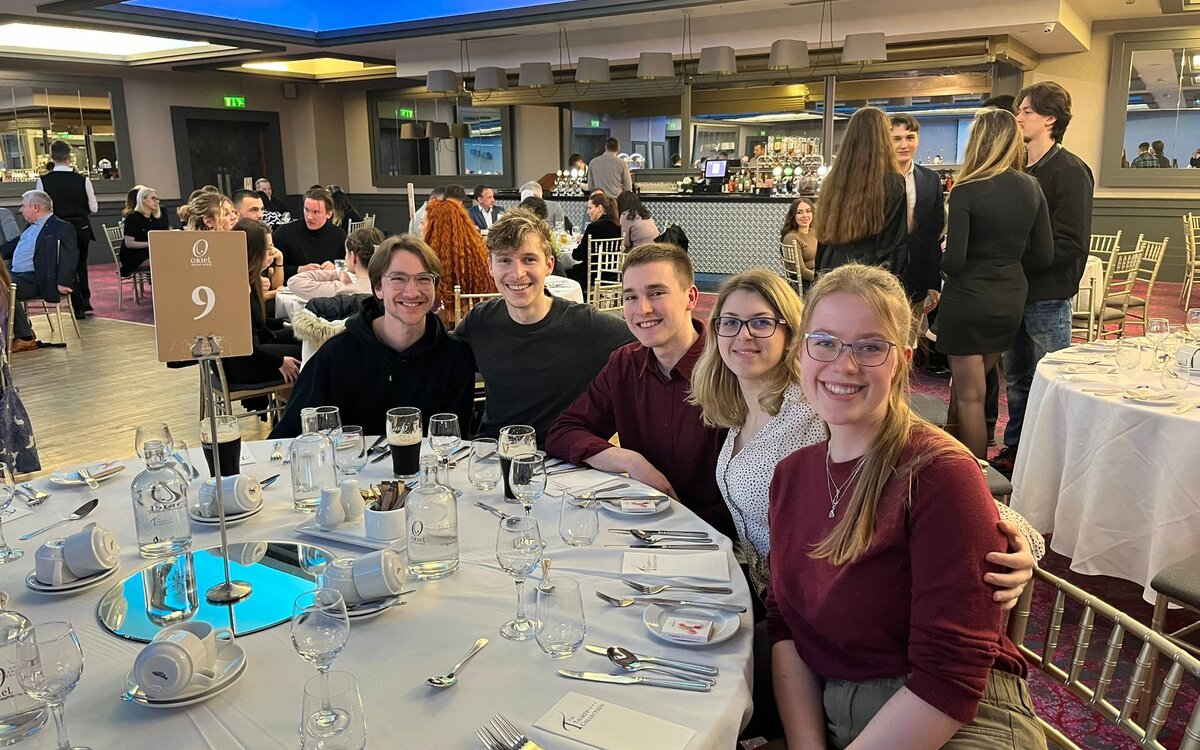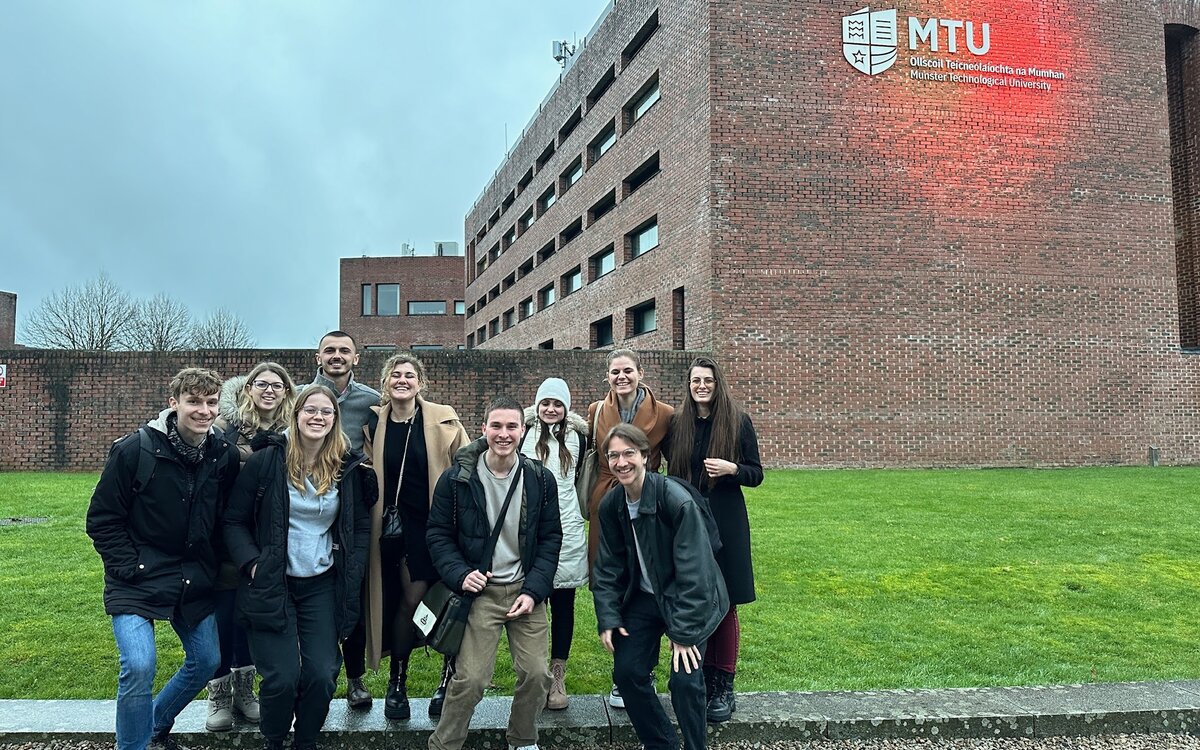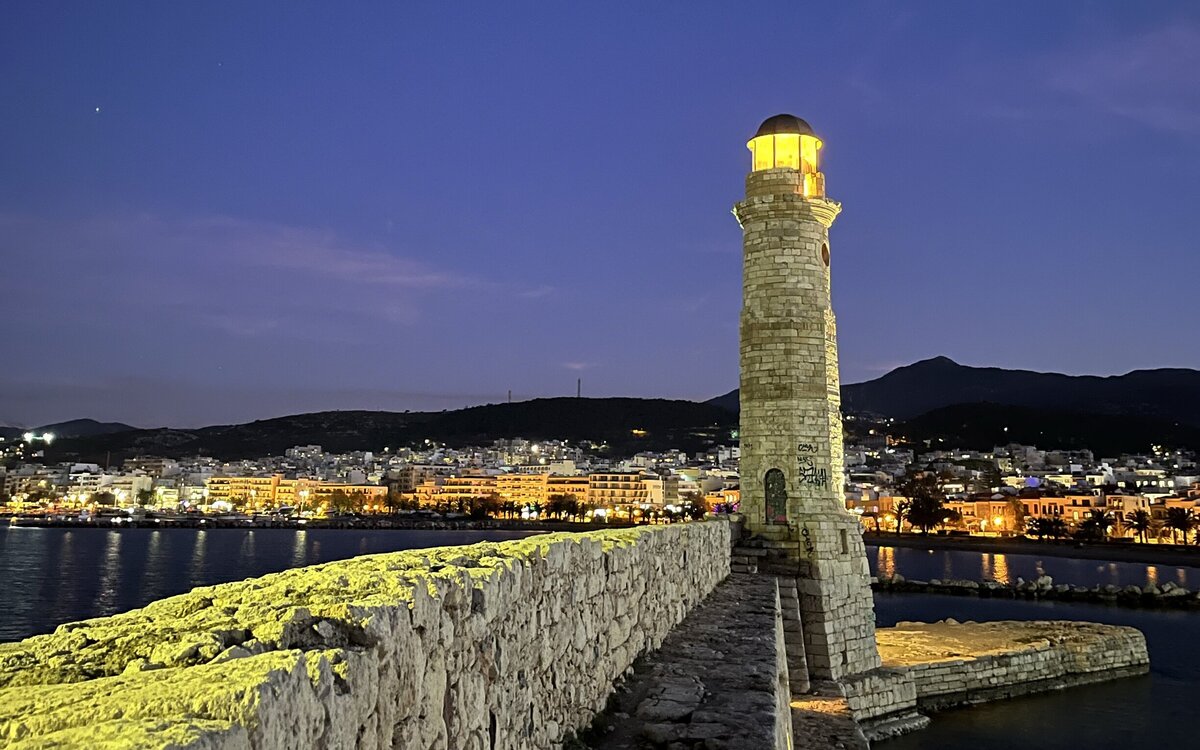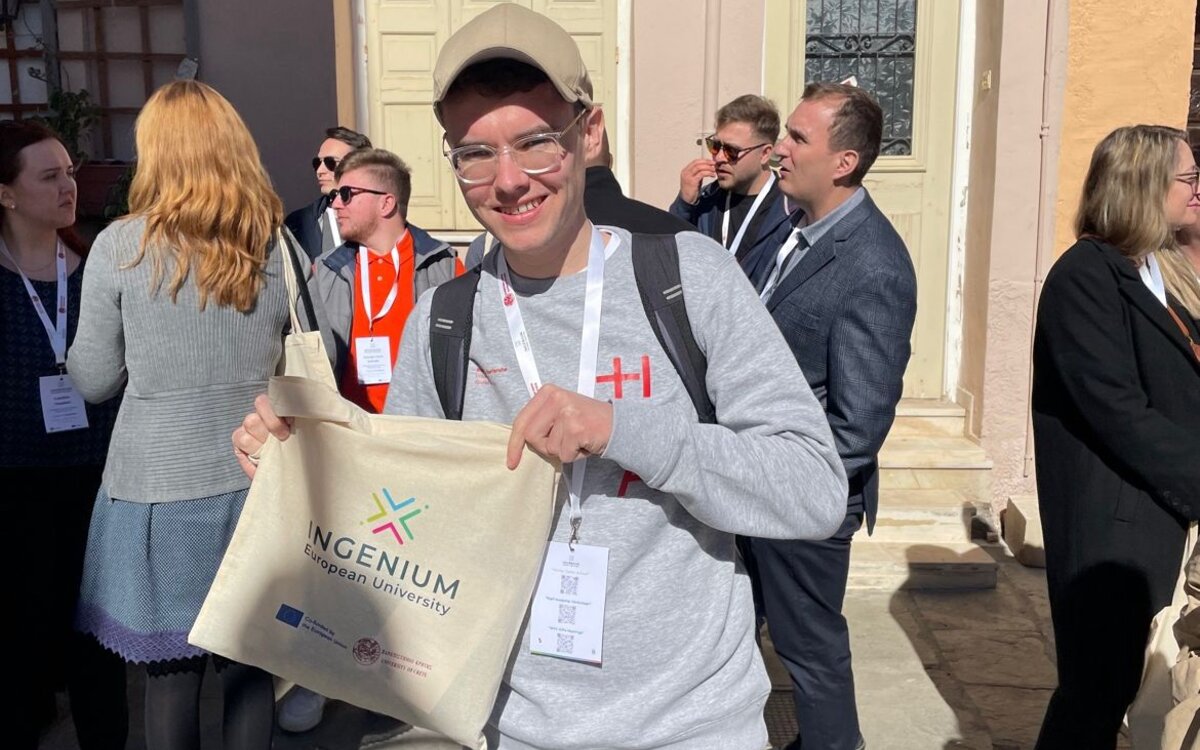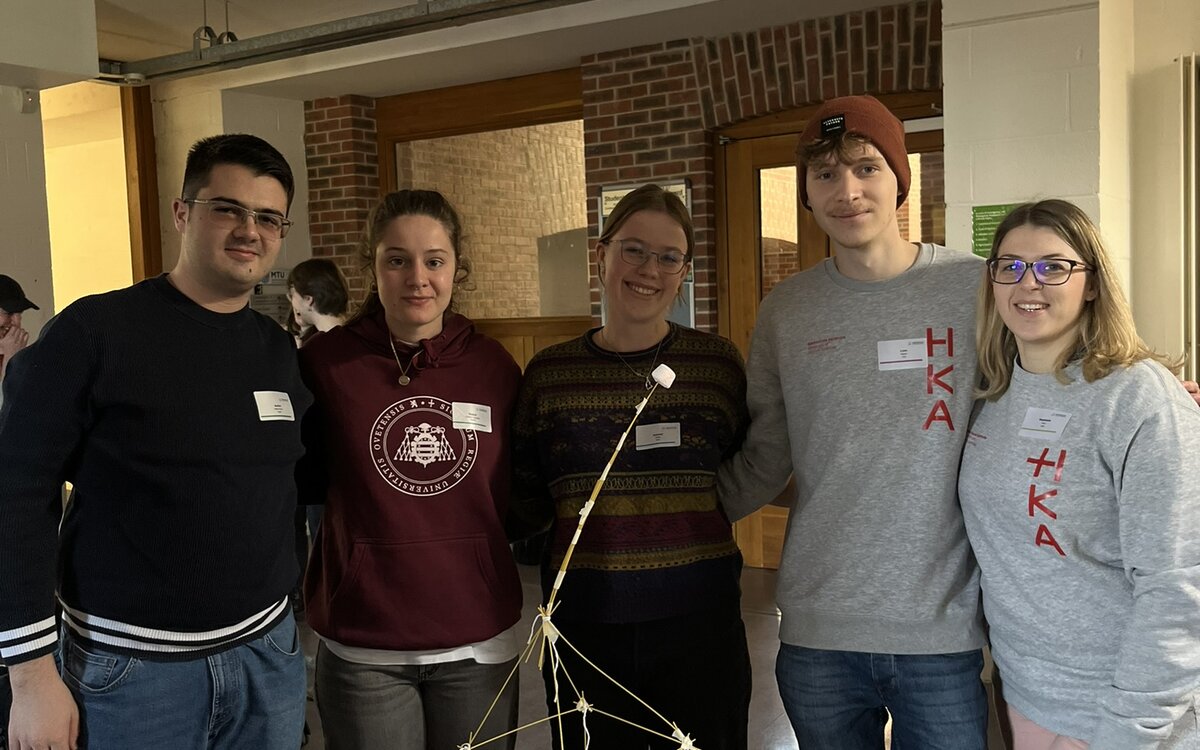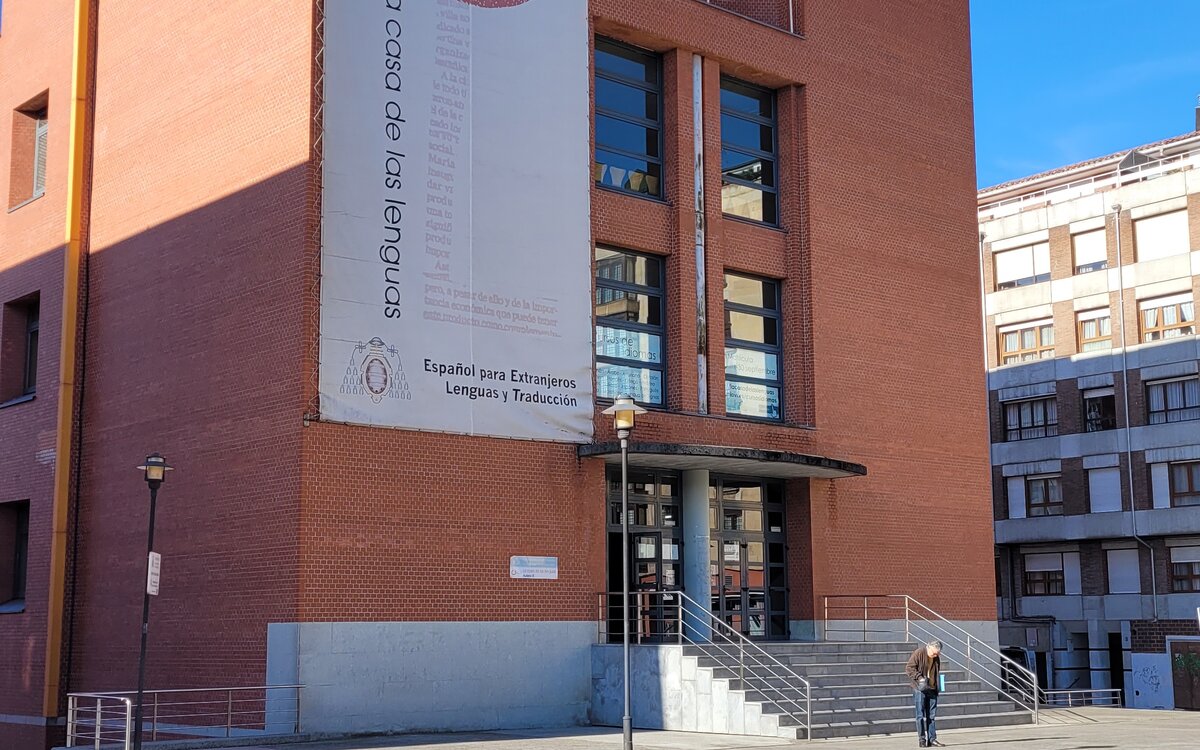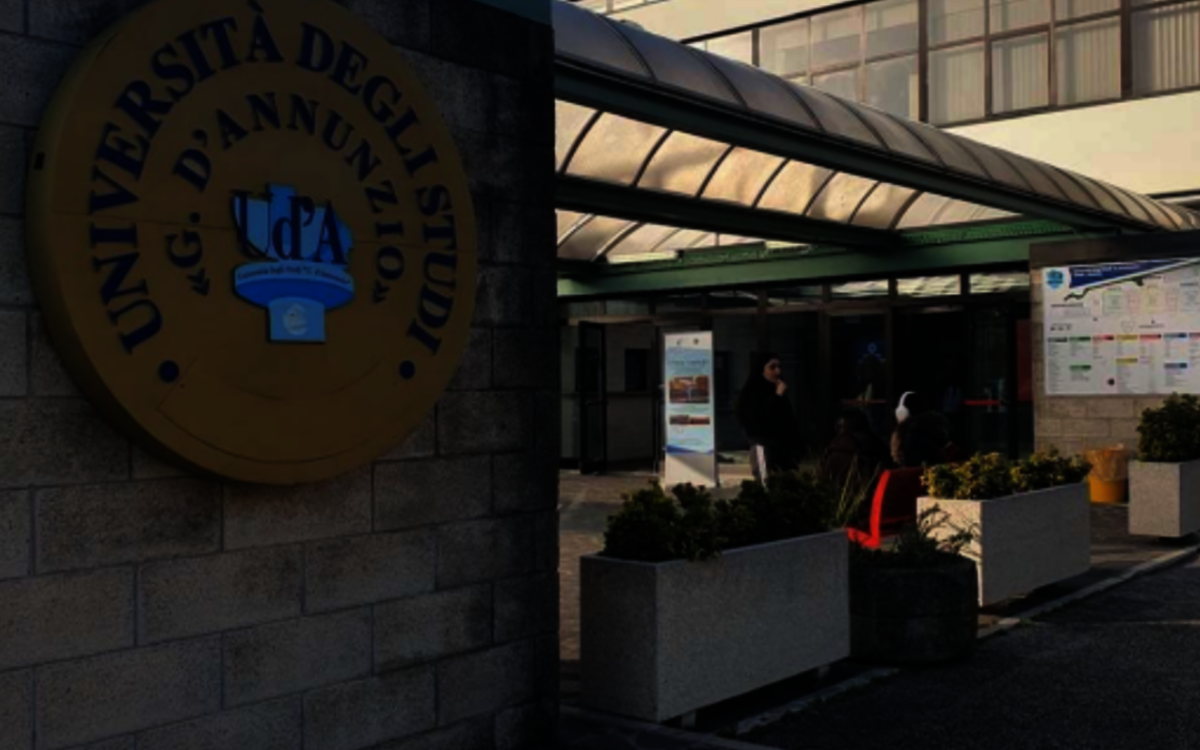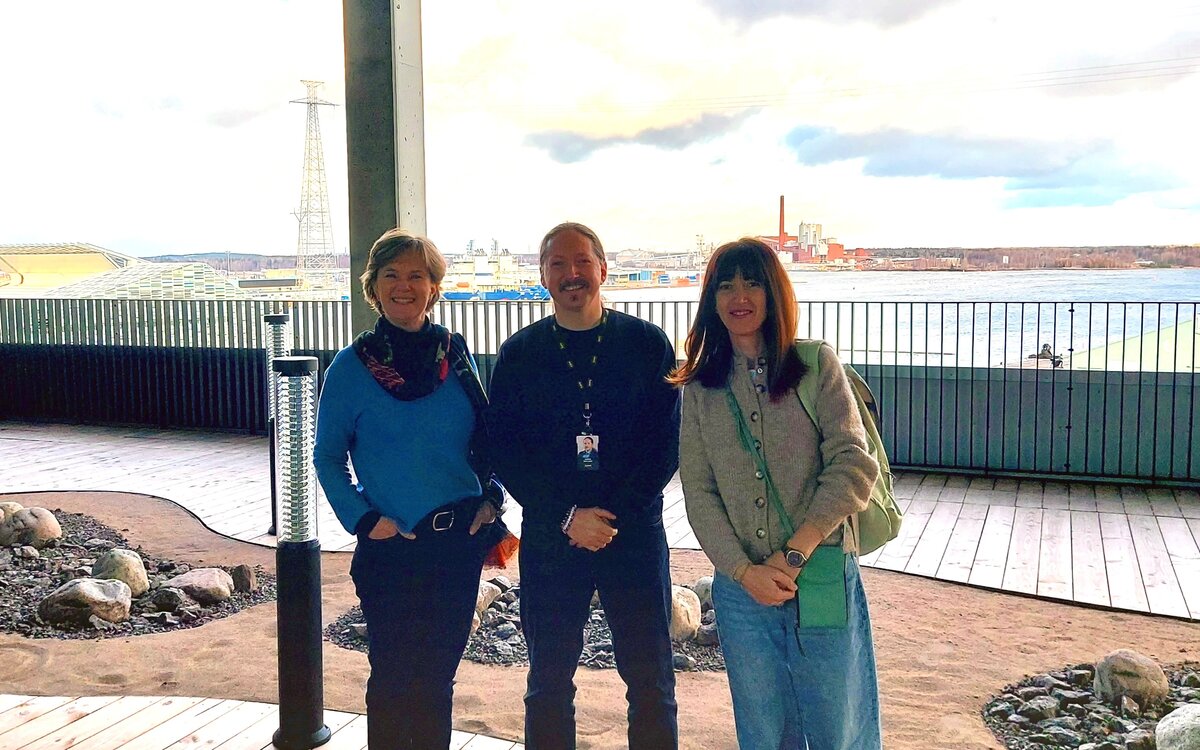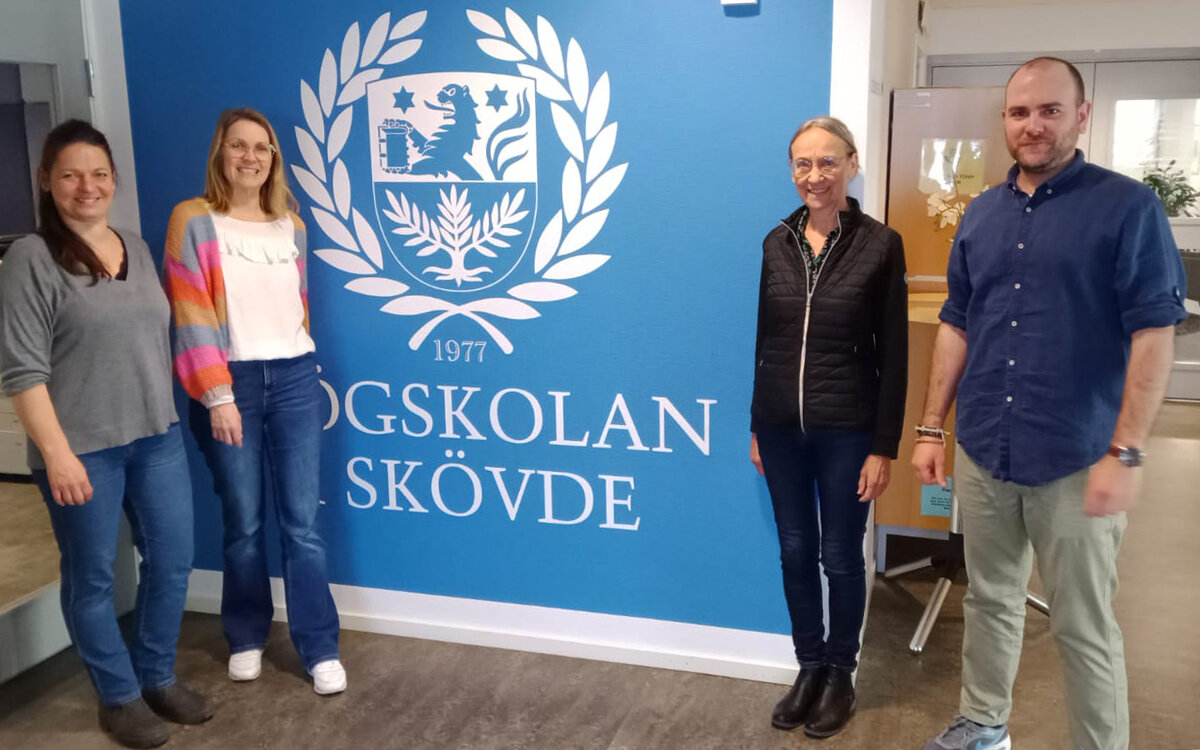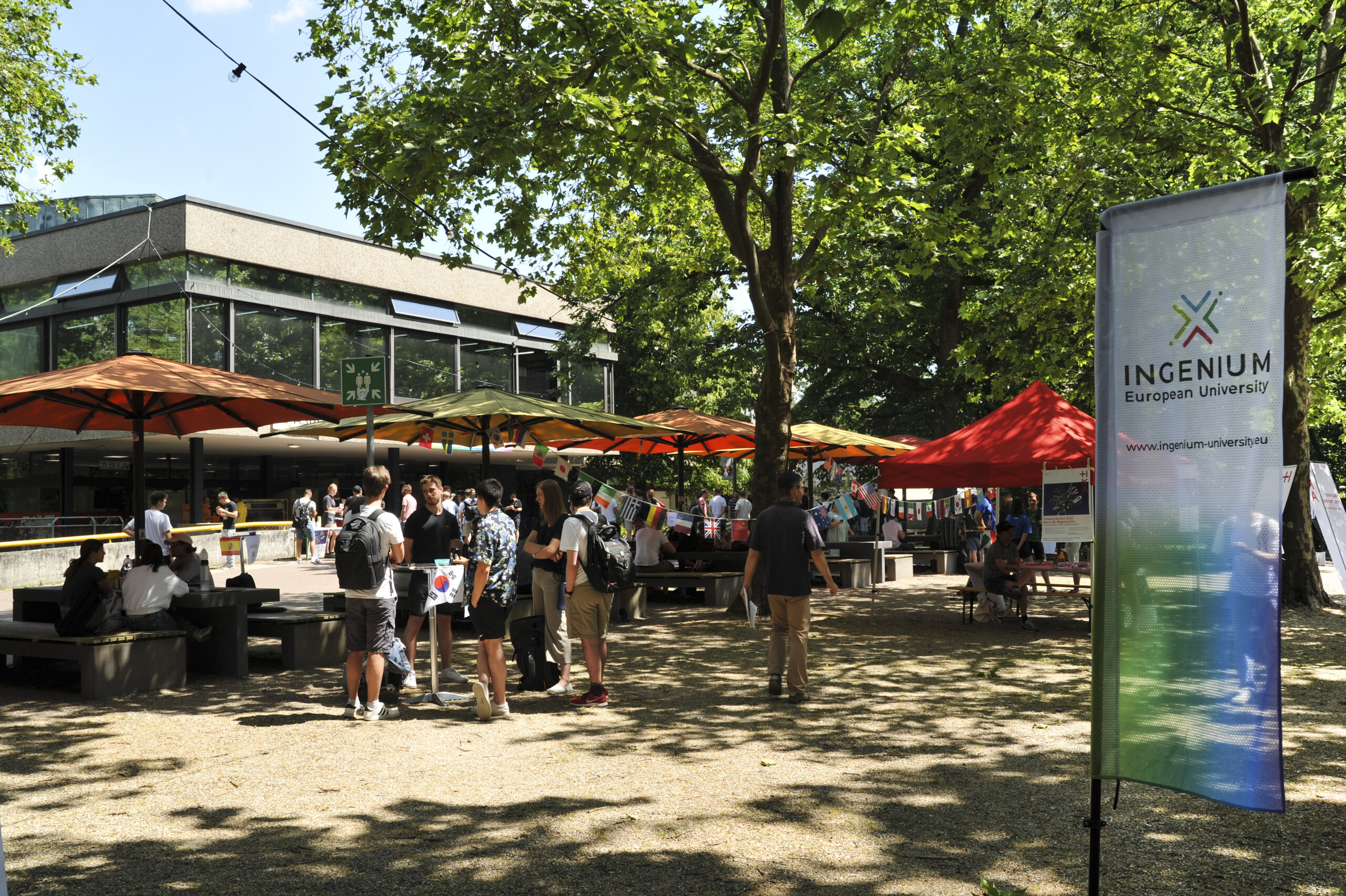
INGENIUM – a European University Network
Testimonials
The INGENIUM European University offers a wide range of opportunities for further professional training, personal development, intercultural experiences and networking to all members of the HKA.
On this page, participants of past events report on their experiences.
10 Days of INGENIUM
Staff Exchanges
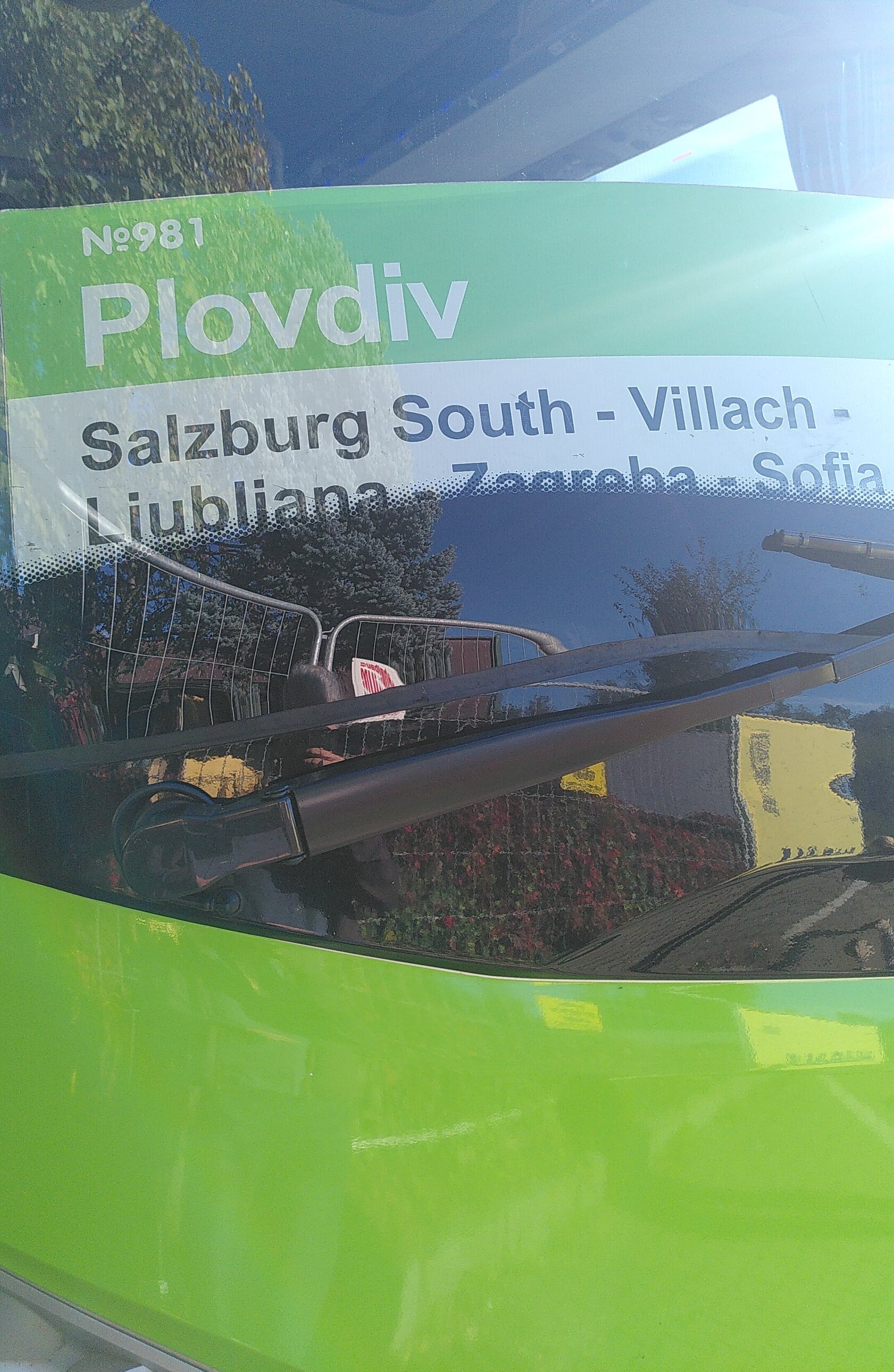
From Germany to Bulgaria by bus
International networking requires contact and direct encounters are difficult to replace, especially when it comes to building mutual trust. But how do you travel when, in times of climate change, it is obvious that any trip not taken is actually a better trip?
The challenge: despite the long distance (Bulgaria), the business trip should be as sustainable as possible, i.e. the CO2 footprint should be as low as possible. The flight is already out of the running. The research in advance results in two options: train or bus. The train journey, as it quickly becomes clear, is extremely time-consuming, as the connection is not direct but via Hungary and Romania. The bus journey, on the other hand, is largely direct and therefore correspondingly shorter. A comfortable 28 instead of almost 40 hours.
After a preliminary stopover in the old homeland on the way, we set off on the actual business trip on Monday, October 16, 2023: with the Flixbus from Salzburg to Sofia. The first surprise comes as soon as you get in. My seat is double booked and we have to negotiate who sits where. In the end, everyone gets a seat and no one has to stand. This broke the ice with my fellow travelers and I found out that the person sitting next to me had further training in voice training in Munich and is now returning to her hometown in Styria. Not all constellations are so lucky with good entertainment: a commotion breaks out in the back rows, almost out of nowhere. And my mind's eye zooms out of the bus like in a comic and sees it lurching along the highway, triggered by a mass brawl inside. It doesn't come to that and a little calm returns. When the tumult breaks out again in Ljubljana, the two bus drivers solve it very pragmatically and throw the initiator of the tumult head first (!) out of the bus. The remaining hours are then much quieter and are essentially only interrupted by the sometimes longer, sometimes shorter procedures for crossing the border (Croatia, Serbia, Bulgaria).
Interim summary: exhausting, but easily doable. The attempt to use the travel time for work turns out to be relatively short. The space on the bus is so cramped that working in a relaxed manner is not possible. There is still time to enjoy the beauties of the respective surroundings (e.g. the view of the Watzmann or the Triglav) and to exchange ideas with my fellow travelers.
We arrive in Sofia early in the morning. We have three days of international exchange ahead of us, both professionally and personally. The initial reluctance is quickly overcome. We start talking about the various topics, but also during the organized joint excursions. And by the second dinner at the latest, when we are asked to join in the traditional Bulgarian dances in the restaurant, the last shyness disappears. With music and dance and having fun together, we can easily overcome one or two language difficulties. This can clearly be felt in the mood on the third day. It's no longer just individual delegations for a joint project, but we are pushing this joint project forward. Unfortunately, that's it. It's already time to say goodbye, but the continuation at our partner university in Crete is already planned for February...
Before the bus leaves for Karlsruhe, there are a few hours left for a trip to the nearby Vitosha Mountains and to Cherni Vrah, the black mountain, from which there is a beautiful view of Sofia. Then it goes back and with every border crossing it becomes clear that it is not always just a formality. Difficulties arise again and again and sometimes individual people “suddenly” no longer travel with us. The specific reasons behind this remain obscure. I hear from experienced travelers on this route that the reasons can be very different (e.g. an unpaid traffic ticket). I get the feeling that, as a traveler with a German passport, I am privileged when traveling.
Overall, I find the travel experience much more intense compared to a plane trip. I spoke to many and very different people and was able to at least gather a lot of impressions of the landscape. The ability to drive overnight meant I needed two days to complete the trip instead of one. In return, the costs are about half as much as a flight. And for the goal of avoiding CO² emissions, there is a footprint of 153 kg for the bus trip compared to 860 kg for the flight and thus a saving of around 700 kg (according to: carbontracer.uni-graz.at ).
In my opinion it was worth it and worth the effort. So the challenge for the next meeting – Crete – is there.
